Isha Hans on Her Work and Speaking at the Design Research Society
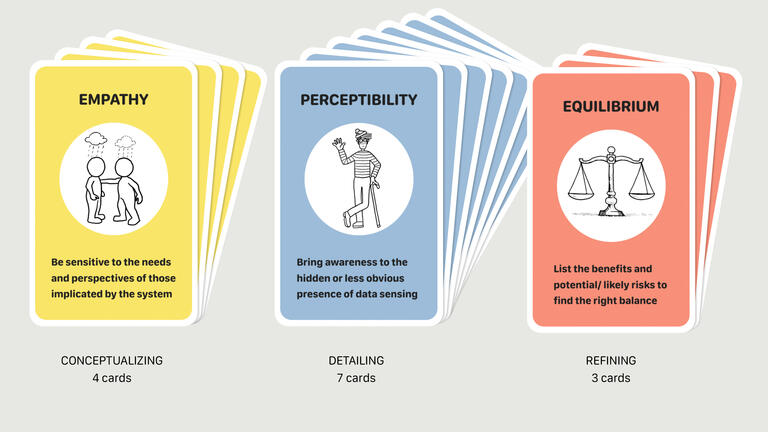

Isha Hans, a master’s alumna of Carnegie Mellon University’s School of Design (MDes ’22), has had a busy summer. She published and presented her work at the Design Research Society (DRS 2024), is getting ready for another semester of teaching design at the University of Waterloo, and launched a Kickstarter for what she calls a “Play and Display” experience.
Hans presented her paper, “Penumbra of Privacy: A People-Centered and Place-Centered Approach to Data Privacy for Smart Workspaces” at DRS 2024 which speaks to her broader work on the topic of privacy. The paper is co-authored with Nierenberg Assistant Professor of Design Dina El-Zanfaly and Bosch Distinguished Professor in Security and Privacy Technologies Lorrie Faith Cranor; and started as part of her thesis work in the MDes program.
Hans was motivated by a curiosity about how privacy may be defined and managed, when physical environments are equipped with sensors to turn them into ‘smart’ buildings. “What intrigued me is that concepts that have always been part of our lives, like privacy, suddenly have different meanings in the context of digital technology,” said Hans. “For example, if I sat with my back towards you or turned away, it subtly signals the need for privacy, which you’d likely pick up on. But when we start capturing data through sensors in physical spaces, we ignore these behavioral cues and view data strictly in a statistical sense, as if these qualitative aspects are redundant.”
Hans argues that designers are trained to think from a people-first perspective, but there’s a gap between this mindset and a purely engineering-driven approach. She continues, “In a smart building, the focus is on the engineering prowess of sensors and the data they may collect to efficiently run the building. There is some value in that, but data is not just numbers; it represents the experiences, behaviors, and patterns of people’s lives. This mindset gap needs to be bridged in real-life projects.”
Hans saw the opportunity to visualize people and their interactions in order to conceptualize privacy in smart spaces. Her paper presents two key ideas:
- Advocating for a theory of change where privacy approaches are not just computing-focused but also integrate a broader approach based on human-centered experiences and values.
- Embedding this comprehensive approach in the early stages of innovation through a generative design process that involves multidisciplinary stakeholders.
The generative design process is facilitated through a “Designing with Privacy” toolkit for stakeholders who shape smart buildings. These include building managers, architects, designers, engineering specialists (including IoT and privacy engineers), and software developers. The toolkit provides 14 value-based privacy prompts in the form of a deck of cards to help create a privacy brief that considers people, places, and data. For Hans, this work also highlights that privacy is becoming increasingly complex as physical and digital notions converge, with implications even beyond smart buildings, such as in the Metaverse.
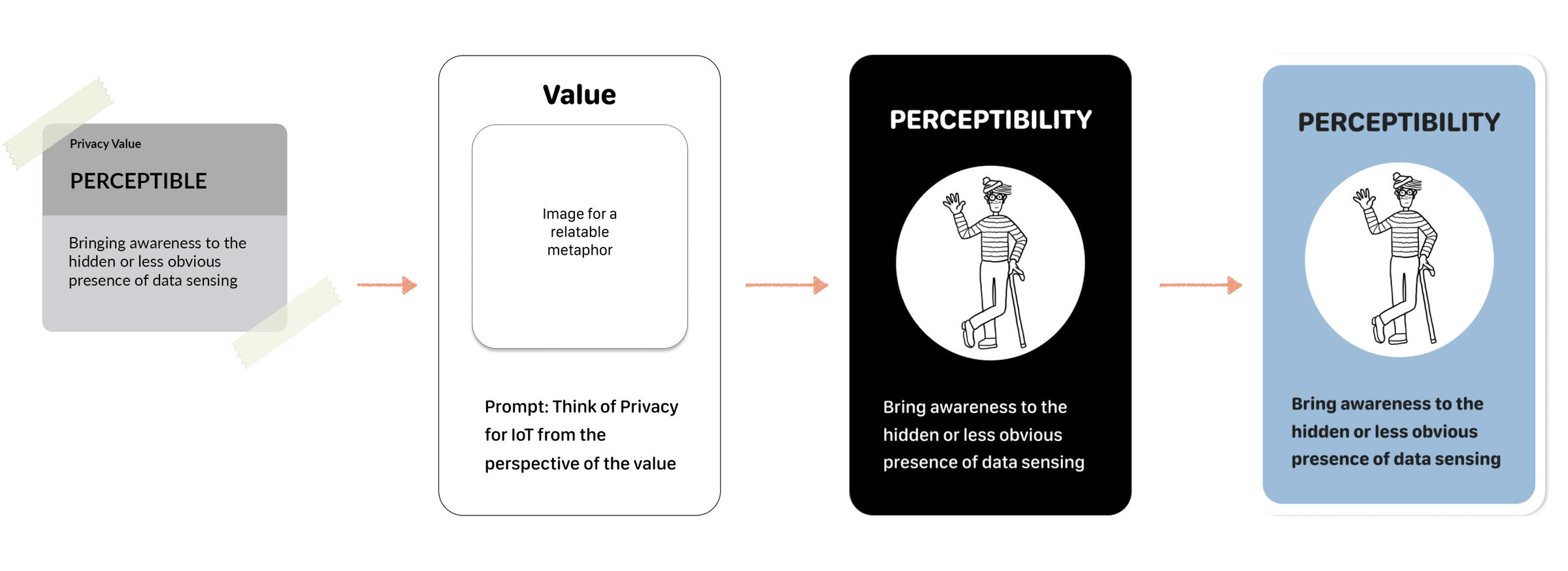
Hans has continued her passion for privacy through another project that looks at individual privacy practices. She shared, “Behavioral patterns around secret sharing are fascinating. We all share secrets, like passwords, with those we trust, often without thinking twice about how we do it. Most people use insecure methods to share passwords, which is a well-known problem, and engineers, of course, are eager to tackle this by innovating new, complex technologies. The issue is better managed within organizations that mandate individuals to be cautious, however, these behaviors don’t always extend to our personal lives, where the dynamics are different and the barriers to secure sharing are higher. I wanted to create something that addresses this issue by considering human behavior in personal relationships and encouraging gradual, positive changes in how we share sensitive information. Right now, it’s a longer-term project in progress."
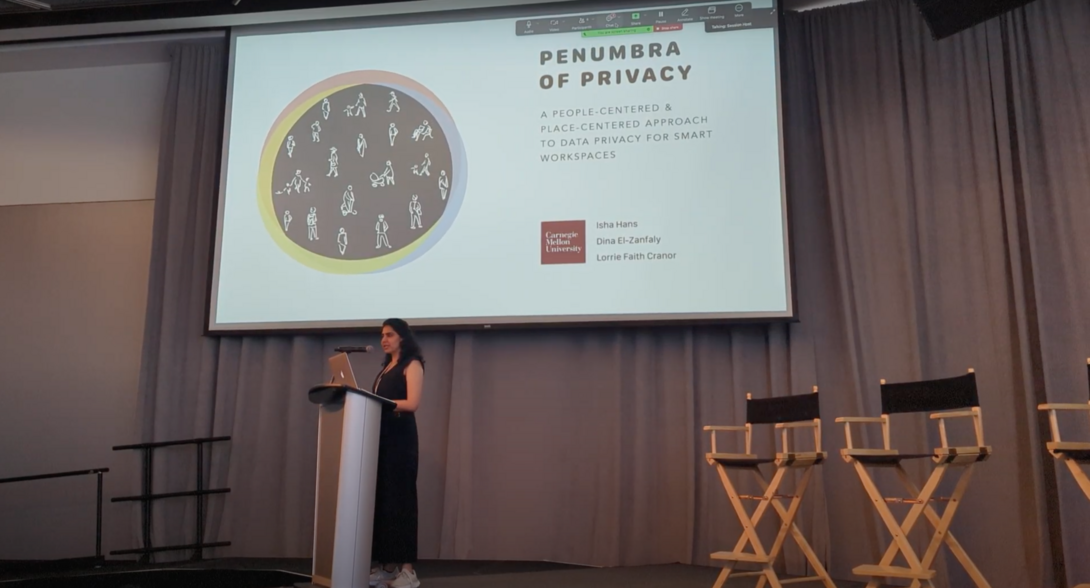
In addition to her design work, Hans has been deeply involved with the entrepreneurial community at Carnegie Mellon, where she was a Swartz Entrepreneurial Fellow. Continuing her entrepreneurial passion, she runs a solo venture called Pumbhirri Studios and recently launched a unique product on Kickstarter—the 'Play and Display' experience. Hans, who has been painting since she was nine, wanted to create a more meaningful way for people to engage with her art. “I realized that art prints often end up as passive decorations, lacking a personal connection with their owners, and I wanted to change that,” Hans explains. “I thought what if I share my art in a way that sits between a museum experience and a home decoration. It took me three years, starting from exploring different mediums to landing on puzzles, to creating this unique experience.”
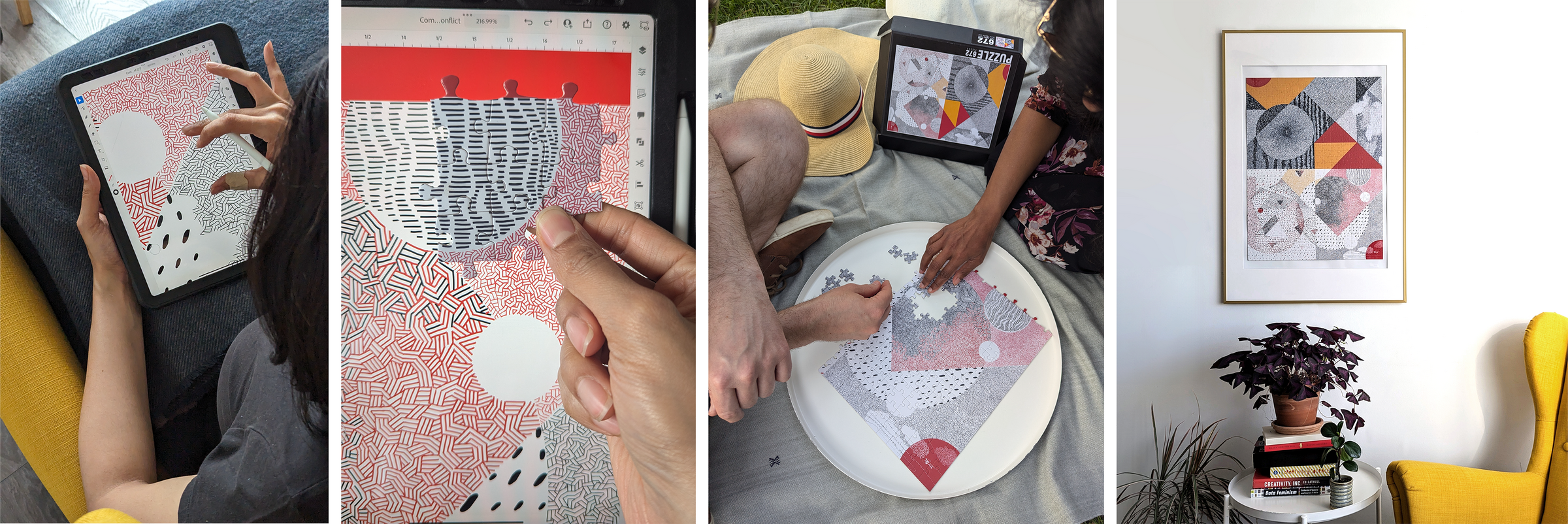
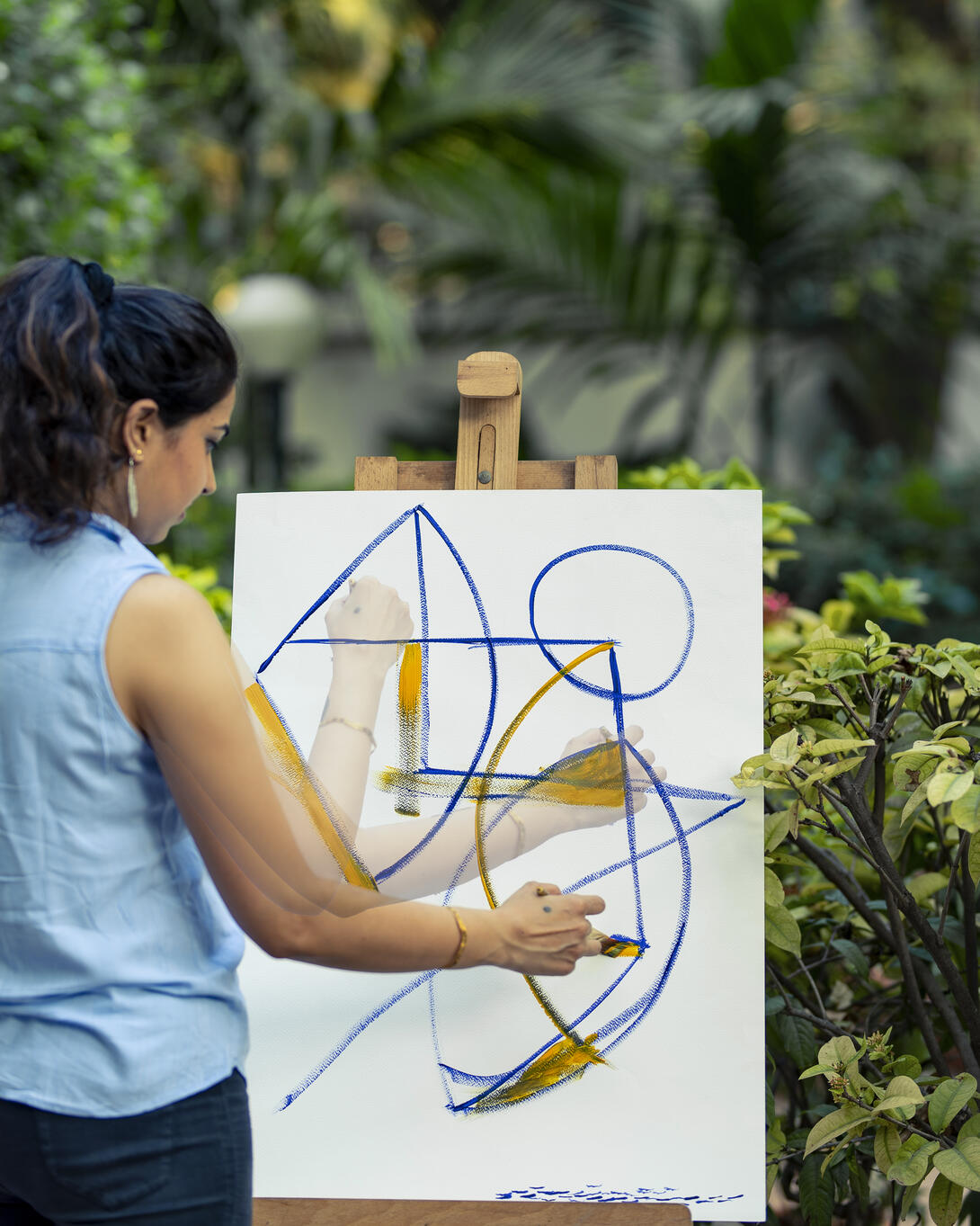
The 'Play and Display' experience features a 3-in-1 artwork to be assembled as a puzzle, so that people discover details piece by piece, before framing it for display. “Maybe you notice something, or perhaps you cherish the assembly process with someone, and that makes it feel more personal and meaningful,” says Hans. “This wasn’t just about turning artwork into a puzzle, but I started bringing in more and more of the experiential elements. For example, puzzle making requires space to spread out and dedicating one table for it for a long time may not be desirable, or incorporating elements of gaming, such as rewards and leveling up, to keep people motivated and engaged. I continuously alternated between hand-drawing the artwork and reimagining the traditional puzzle-making experience.”
'Play and Display' is now live on Kickstarter until September 14, 2024, where people can support Hans’ venture and receive puzzles featuring her intricate line work .
Outside of her work on privacy and art adventures, Hans is going into her 7th year of teaching design. She currently teaches second to fourth-year undergraduates at the University of Waterloo, with courses ranging from the fundamentals of experience design to, most recently, a mixed reality design project where the students are challenged to move beyond 2D screen design and imagine holistic 3D experiences.

Even though Hans is incredible busy these days, she still reflects fondly on her time at the School of Design. “The value of coming to the School of Design isn’t just about learning the different aspects or kinds of design processes,” said Hans. “It’s about developing a critical point of view that allows you to bring it all together as a designer. I think that's so unique because it moves beyond the usual distinctions like ‘UX Design,’ ‘Service Design,’ or ‘HCI’ to teach skills applicable across all these areas and opens up so many more career possibilities.”
Hans continued, “I remember our first semester, especially the Seminar 1 course taught by Molly Wright Steenson. The course exposed us to a wide range of ideas like algorithmic management, data ethics, privacy, human-machine relationships, values-based design, and the list goes on. Typically, these domains are left to engineers, but the point is that the context of our work as designers really matters. I’m not sure many programs emphasize this big picture thinking along with the detailed focus. This broader vision is what I have carried with me ever since, to carefully think about where I want to go next—and not just be a designer focused on UI, but be someone who understands the impact of every research insight, every design decision, every business decision on the entire organization and the people we’re designing for.
"That’s a perspective I honed at the School of Design, and I loved every bit of it.”
Support "Play and Display" on Kickstarter
Learn more about Master's Degrees at the School of Design